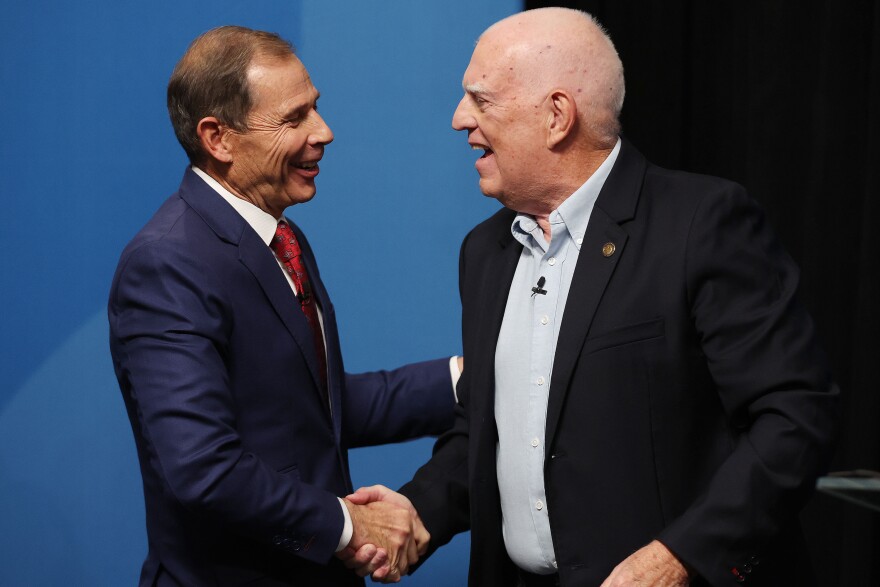Incumbent Republican Rep. John Curtis squared off with his Democratic challenger Glenn Wright in the debate for Utah’s 3rd Congressional District on Oct. 6 at Brigham Young University. The debate was organized by the Utah Debate Commission and moderated by Natalie Gochnour of the Kem C. Gardner Policy Institute.
In June’s Republican primary, Curtis clinched the party nomination. He now faces Wright, a current Summit County Councilor, in November’s midterm election. Polling site FiveThirtyEight rates Utah’s 3rd District as “solid Republican.”
At the debate, candidates took questions on topics ranging from the economy and immigration to climate change. Subjects that drew the starkest contrast between the two included how to fix inflation, gas prices and the future of energy in Utah.
Wright said inflation could be brought down by reducing dependency on fossil fuels.
“We [reduce inflation] in the long term by electrifying our transportation infrastructure,” he said. “By decreasing demand, we will decrease the price of oil for everyone and we will make ourselves independent of the petro-despots around the world that are causing so much trouble.”
The district covers a large swath of Southern and Eastern Utah — home to coal, oil and gas production.
Curtis, who has been in Congress since 2018, called out runaway federal spending as the main culprit causing inflation.
“Inflation comes when you have too much money chasing too few goods,” he said, recalling an old economics lesson from college. “What are we doing in Washington D.C.? We’re putting way too much money into the economy and we’re over-regulating businesses so the free market can’t work to get goods there.”
The debate was civil, without any fiery exchanges between the two. But Curtis and Wright sharply disagreed on topics like legalizing marijuana and the Supreme Court Decision to overturn Roe v. Wade.
Wright called adult marijuana use a “victimless crime,” while Curtis said President Joe Biden’s recent pardons of people convicted of simple possession charges of the drug represented an “end-run around Congress.”
On the issue of abortion, Wright railed against the U.S. Supreme Court’s Dobbs decision, calling it an “egregious error” that has allowed some states, including Utah, to enact laws that have severely restricted abortion access or outright banned it. Curtis said he was “unapologetically pro-life” and that the court’s decision to give states the power to legislate abortion provides more accountability to constituents than at the federal level.
In a FiveThirtyEight poll published Sept. 13, Curtis held a 25-point lead over Wright.
“I run as if I’m going to win by one vote every time I run any race,” Curtis said. “I think I owe that to the constituents … I feel like I need to earn every vote, and I don’t pay attention to polls.”






